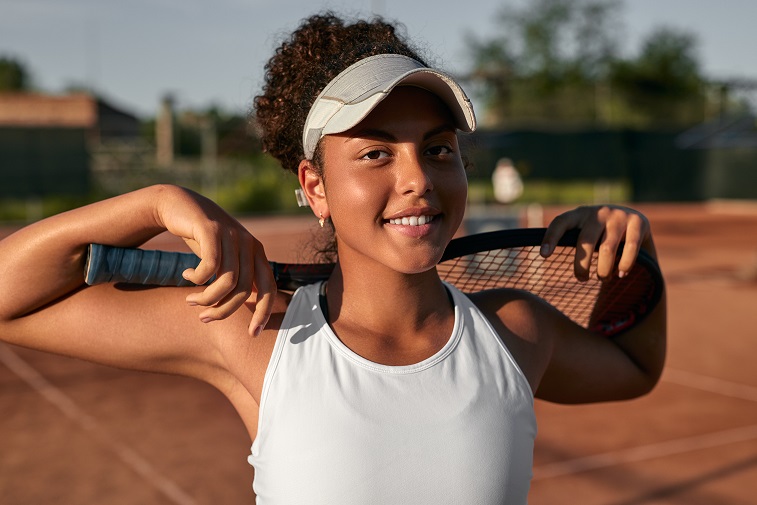
All athletes, including tennis players, need to build mental toughness to become successful as they follow their passion. This is especially important for kids who are enrolled in tennis summer camps if they want to develop a competitive edge.
Below, we explore how mental toughness can make your child a better tennis player.
Key Components of Mental Toughness While Playing Tennis
When it comes to sports, mental toughness is the ability to cope with difficult situations. It involves having self-confidence, being optimistic, refusing to be intimidated, staying focused when under pressure, being determined to finish a match (even when things are going badly), and learning how to control our emotions.
- Focus & Concentration: Players must “stay in the moment” when practicing or playing in a competitive match. It is essential to maintain focus and avoid distractions. Performing mindful exercises and concentrating on the present moment can help build focus and concentration.
- Emotional Control: Tennis matches can cause a variety of emotions, from outbursts of excitement to frustration and anger. Learning how to replace negative emotions with positive ones can improve a player’s overall game.
- Resilience in the Face of Challenges: Every player faces challenges on the court, whether it is distractions, setbacks in play, or outside pressure to perform. Taking control of the situation by concentrating on the match and playing up their strengths can help a player succeed.
- Positive Self-Talk and Confidence: One of the biggest aspects of any tennis player’s success is self-confidence. Focusing on the task at hand and using positive self-talk can help a player overcome self-doubt and intimation when facing an opponent.
Benefits of Mental Toughness in Tennis
A recent review of The Impact of Mental Toughness on Athlete’s Performance and Interventions to Improve, published through PubMed, focused on the outcome of using various strategies to engage resilience and mental strength.
It was found that while physical training is essential to an athlete’s success, it is not enough to build mental toughness. Rather, developing coping mechanisms, psychological skills training, relaxation techniques, and imagery were just a few methods that can help athletes build mental toughness.
By adopting some of these strategies, tennis players can improve their performance when under pressure, improve their decision-making and problem-solving abilities, and have more fun when playing tennis.
Examples of Mental Toughness in Tennis Scenarios
Below are some prime examples of when young tennis players may need to have mental toughness.
Serving Under Pressure
Reputable tennis camps teach valuable techniques for maintaining composure during competitions to cope with potentially stressful situations, particularly when it comes to serving under pressure.
When emotions get high, players can benefit from a quick mental break. Stepping to the side for a towel, drink, or to snatch a ball can be enough time to take a proper breath and restructure their breathing to their movements.
Facing Strong Opponents
A confident tennis player must be mentally prepared to face tough opponents. Building mental toughness can help players better control their anxiety, frustration, and anger, especially since it can impede a player’s performance.
Knowledge is power and being aware of the opponent’s weakness is a fair play strategy. More than likely, the opponent is anxious or frustrated too. Players can use this to their advantage and make facing difficult opponents easier.
Overcoming Slumps and Challenges
A “bad match” or a recurring performance slump can stress out even the best tennis players. To overcome challenges, a player needs to look at these opportunities as a chance to grow and improve their skills.
Some strategies that can help players overcome slumps include, being mindful of their self-confidence, conquering anxiety, and learning how to control difficult emotions. Using the skills learned during practice drills can improve a player’s state of mind as well as their performance.
Become a Complete Tennis Player: Enroll in Bayview Village Tennis Camp
For more than 30 years, Bayview Village Tennis Camp has been providing tennis programs for beginner, intermediate, and advanced player levels at our summer tennis camp for kids. Contact us today at (905) 889-7293 or email pnielsen889@rogers.com for more information about a tennis camp. Book your child’s spot before our tennis sessions sell out!